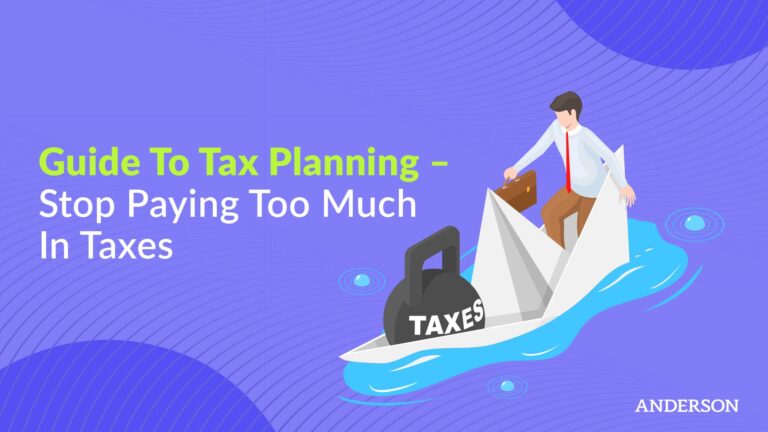Updated September 24, 2021
Sometimes, business partners are so excited about and passionate about doing business that they rush into a partnership without a written business partnership agreement. Later, these partners realize that they should have made a partnership agreement to define their business relationship. While it is never too late to create a business partnership agreement, it is always best to have a written agreement before you form a partnership with another party.
5 Reasons You Need a Business Partnership Agreement
- Determine Ownership Interest and Business Structure
- Define Each Partner’s Responsibilities and Authority
- Establish Limited Liability for Partners
- Ensure Clear Dispute Resolution
- Outline Procedures for Partnership Dissolution and Handling Partner Exits
There are many advantages of having a written business partnership agreement. Business partners may overlook the necessity of a partnership agreement. However, that oversight could lead to time-consuming disputes, litigation, and business attorney fees that all could have been avoided with a simple partnership agreement.
Business partners have a variety of partnership contracts to choose from as they develop their business structure and determine the decision-making process and profit structure when starting a business together.
1. Determine Ownership Interest and Business Structure
A written partnership agreement sets forth the ownership interest, including capital contributions, for each partner. Without a written business partnership agreement, the partners are assumed to have equal ownership of the business, which under most state law entitles the partners to an equal share of the partnership’s profits and losses. However, with a written partnership agreement, the business partners can allocate profits according to capital contributions or other terms they agree upon when they create their partnership contract.
A partnership agreement also sets forth the business structure and chooses the operating business entity of the partnership. It also provides information about the company, such as its name and whether there will be a DBA name for the company. The agreement can be very detailed and define any tax free investments available to partners or employees, such as retirement funds or life insurance coverage.
Several types of partnerships can be created under state law. It is important to review the state laws applicable to partnerships when starting a business. Many states have enacted laws that recognize and govern various types of partnership agreements, including:
- General Partnership (GP)
- Limited Partnership (LP)
- Joint Ventures
- Limited Liability Partnership (LLP)
- Qualified Joint Ventures
- Limited Liability Limited Partnership (LLLP)
- Professional Limited Liability Partnership (PLLP)
Because the choice of a business entity impacts numerous aspects of the business relationship between partners, it can be helpful to consult a business attorney before determining which type of partnership agreement is best for you and your business partners.
2. Define Each Partner’s Responsibilities and Authority
The business partnership agreement determines the business structure and the type of partnership you establish with your business partners. Within the partnership agreement, each partner’s rights and responsibilities are defined and established. The business entity also helps define how the partnership business operates. Without a written business partnership agreement, partners may encounter legal questions and problems as they conduct business and distribute partnership profits and losses.
Some of the key topics regarding a partner’s rights and responsibilities covered in a business partnership agreement include:
- Share of profits and losses of the partnership
- Responsibilities for attorney-client relationship for partnership clients
- Right to make business decisions for the partnership
- The decision-making process for certain business questions
- Non-disclosure agreements and acceptance of a non-compete clause
- Ability to enter a contract on behalf of the partnership
- Amount of start-up capital required from each partner
- Ownership of intellectual property
- Ownership of partnership property
- Decisions that require a unanimous vote by all business partners to pass or written consent of all partners, such as using a business credit builder
- Authority to transact business with the partnership bank account
- Obligations for partnership debts and liabilities
- Authority to hire and fire employees
- The procedure required to update articles of partnership or the business partnership agreement
The above list is just a sample of the topics covered by a partnership agreement. A business partnership agreement can be tailored to meet the needs and desires of the parties forming the partnership.
3. Establish Limited Liability for Partners
For some business partners, limited liability for partnership debts and liabilities is an important factor when forming a partnership. The type of partnership and the terms of the business partnership agreement dictate each partner’s personal liability for partnership debts. The type of partnership and the partnership contact also determine whether partners have full liability or limited liability for the decisions and actions of the other partners.
In a simple partnership or general partnership, all partners share equally for the liability of partnership debts and obligations. The business partners are also personally liable for the decisions and actions taken by each partner regarding the partnership business. For example, if a partner misuses a client’s funds and the client sues the partner and the partnership, each general partner is personally liable.
However, in a limited liability partnership, some partners have limited liability for partnership debts and obligations. Their liability is limited to their initial capital contribution. General partners continue to be responsible for all partnership debts and obligations, including the decisions and actions of other partners. Limited partners do not share the same rights and responsibilities enjoyed by general partners. That is the trade-off for having limited liability for partnership debts. In many cases, limited partners may only be investors in the partnership.
Without a written business partnership agreement, most states automatically treat the partnership as a general partnership in which all business partners have equal liability for partnership obligations and debts.
4. Ensure Clear Dispute Resolution
A written agreement is essential for dispute resolution between business partners. Partnership disputes are common. A partnership agreement addresses how partnership disputes can be resolved without expensive litigation between partners.
Dispute resolution might include mediation or arbitration to resolve disputes between partners. It might also involve using a business attorney to negotiate a settlement of the dispute between business partners.
The importance of a written business partnership agreement in dispute resolution is tremendous. Having a detailed section in the operating agreement that dictates how disagreements and disputes are resolved can save time and money, but it can also prevent arguments from ending the partnership.
5. Outline Procedures for Partnership Dissolution and Handling Partner Exits
A partnership agreement also details the procedure for partnership dissolution and the exit of a partner. A partnership dissolution agreement outlines events and incidents that result in the end of the partnership relationship between the parties. In some cases, that could be upon the death or exit of one or more of the partners or certain actions taken by a business partner. It could require the unanimous written consent of all partners or a majority of the partners. It could be automatic when certain events take place.
In addition to defining instances in which the partnership might terminate, the partnership resolution agreement section of a business partnership agreement dictates how the partnership property, profits, and losses are distributed between the partners in the event the partnership ends. In most cases, the ownership interest of each partner determines the final profit and loss distribution. However, certain actions or events defined in the business partnership agreement that cause the partnership dissolution could impact the final distribution of profits and losses.
FAQs About a Partnership Agreement
Are partnership agreements necessary?
There might not be a legal requirement for business partners to have a partnership agreement to form a partnership, but that does not mean that written agreements are not wise.
Articles of partnership might include:
- General partnership agreement
- Limited partnership agreement
- Real estate partnership agreement
- Simple partnership agreement
- Business venture agreement
- LLC partnership agreement
- Small business partnership agreement
- Limited liability partnership
Some states might have laws governing specific types of partnerships that require written partnership agreements. You should always check the laws in the state in which you intend to organize the partnership to ensure that your business complies with state laws and regulations for partnerships. Otherwise, you might discover too late that you formed a general partnership under state law when you intended to form a limited partnership or joint venture. You may also discover that state laws dictate some terms of the partnership when there is not a written business partnership agreement, articles of partnership, or operating agreement.
Can a partnership be formed verbally?
Yes, business partners can form a partnership verbally. However, a partnership that is formed verbally can usually be dissolved at will. Furthermore, without a written agreement, the chance of disputes and disagreements between partners increases.
What are the disadvantages of having a partnership business?
One of the main disadvantages of a partnership agreement is that partners typically share equal liability for all partnership debts and obligations. A simple partnership can create a significant amount of personal liability, especially for general partners who are liable for the decisions and actions of all other partners.
What is the difference between an operating agreement and a partnership agreement?
An LLC operating agreement is typically used to govern the daily operations of a limited liability company (LLC). The LLC has members instead of partners. A partnership agreement is used to form a partnership with one or more general partners and limited partners. However, both written agreements typically cover many of the same aspects of starting a business, such as capital contributions, profits and losses, business decisions, ownership, start-up capital, roles and responsibilities, dispute resolution, liability, debts, assets, and dissolution. It is usually best to seek legal advice from a business attorney when drafting an operating agreement or business partnership agreement.
Can you write your own partnership agreement?
Yes, you can write your own partnership agreement. There is no legal requirement that you seek legal advice from a business attorney or other professional when drafting a business partnership agreement. However, there are some disadvantages of using a partnership agreement template or free partnership agreement you find online.
When using a free partnership agreement template, you cannot be assured that the agreement template has all the legal language necessary to form a partnership. You also cannot be assured that the terms and conditions in a sample partnership agreement cover all aspects of a partnership contract.
A free business agreement template is simply a starting point. Many of the templates you find online are extremely broad. Thus, a one-size-fits-all agreement does not give you the protection, structure, and guidance necessary to protect your best interests and the best interests of the partnership. Using a free partnership agreement form often results in costly and time-consuming dispute resolution or litigation.
Is a partnership agreement legally binding?
Yes, when drafted according to the contract laws in the state in which the partnership is created, a business partnership agreement is a legally binding contract. The terms of the partnership contract can be enforced just as the terms of any other business contract can be enforced. If a partner breaches the terms of the contract, the other business partners can file a lawsuit alleging breach of contract and seeking compensation for damages.
Why Is It Important to Have a Business Partnership Agreement?
The main purpose of a business partnership agreement is to protect the interests of the partners. A written partnership agreement clearly defines the roles and responsibilities of each partner, protects the partner’s initial capital contribution, and ensures that the partners share in the profits and losses incurred by the corporation. A partnership agreement also defines how the company will be managed and determines the rules for resolving disputes and the dissolution of the partnership.
Anderson Advisors offers a variety of legal and tax services for business. If you have questions about partnerships, call 800-706-4741 or schedule your free Strategy Session.
Free Strategy Session with an Anderson Advisor
Receive a detailed risk assessment to assist in lowering problem areas that could wipe out all of your assets with one wrong move. Speak with an Anderson Professional Advisor to get your FREE Strategy Session.
Limited-Time Offer: ($750 value.)











